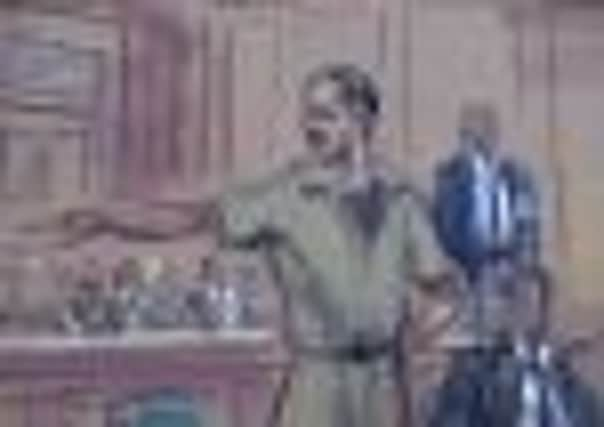Russia angered by 25-year sentence for Merchant of Death Viktor Bout


Prosecutors calimed the 45-year-old was ready to sell up to $20 million (£12.6m) in weapons including surface-to-air missiles to shoot down US helicopters.
On Friday Russia claimed the sentence could have a serious impact of relations.
Advertisement
Hide AdAdvertisement
Hide Ad“This matter, without a doubt, will remain among our priorities in the Russian-American agenda,” Russia’s foreign ministry said, attacking the “illegal character” of the arrest.
Bout was sentenced in New York following his conviction on terrorism charges.
“It’s a lie!” he shouted as prosecutors appealed for harsh punishment.
Bout had been jailed since his arrest in Thailand. He was extradited to the US for trial in 2010.
The 25-year sentence was the mandatory minimum.
US District Judge Shira Scheindlin said 25 years – not the life sentence wanted by prosecutors – was sufficient because there was no evidence Bout would have been charged with seeking to harm Americans if not approached by informants posing as Colombian rebels.
“But for the approach made through this determined sting operation, there is no reason to believe Bout would ever have committed the charged crimes,” she said.
For nearly two decades, Bout built a worldwide air cargo operation, amassing a fleet of more than 60 planes, hundreds of companies and a fortune in excess of $6 billion (£3.78bn) – exploits that were the inspiration for the Nicholas Cage film Lord of War.
His aircraft flew from Afghanistan to Angola, carrying everything from raw minerals to drilling equipment and frozen fish. But, according to authorities, the network’s speciality was black market arms – assault rifles, anti-aircraft missiles, helicopter gunships and sophisticated weapons systems, almost always sourced from Russian stocks or from Eastern European factories.
Advertisement
Hide AdAdvertisement
Hide AdIn the months before the 11 September, 2001 attacks on New York, US, British and United Nations authorities heard growing reports that Bout’s planes and maintenance operations, based in the United Arab Emirates, were aiding the Taleban and al-Qaeda militants in Afghanistan. Bout denied this and denied any black market arms deals. In 2008, while under economic sanctions and a UN travel ban, Bout was approached in Moscow about supplying weapons to the Revolutionary Armed Forces of Colombia (FARC).
He was told that the group wanted to use drug-trafficking proceeds to pay for surface-to-air missiles and other weapons, making it clear it wanted to attack helicopter pilots and other Americans in Colombia, prosecutors said. He finalised the deal with the two informants in a bugged hotel room in Bangkok in March 2008.
Throughout the case, Bout maintained he was a legitimate businessman who wasn’t selling arms when the American operatives came knocking.
Prosecutors said the government initiated its investigation in 2007 because Bout “constituted a threat to the United States… based on his reported history of arming some of the world’s most violent regimes.”
.